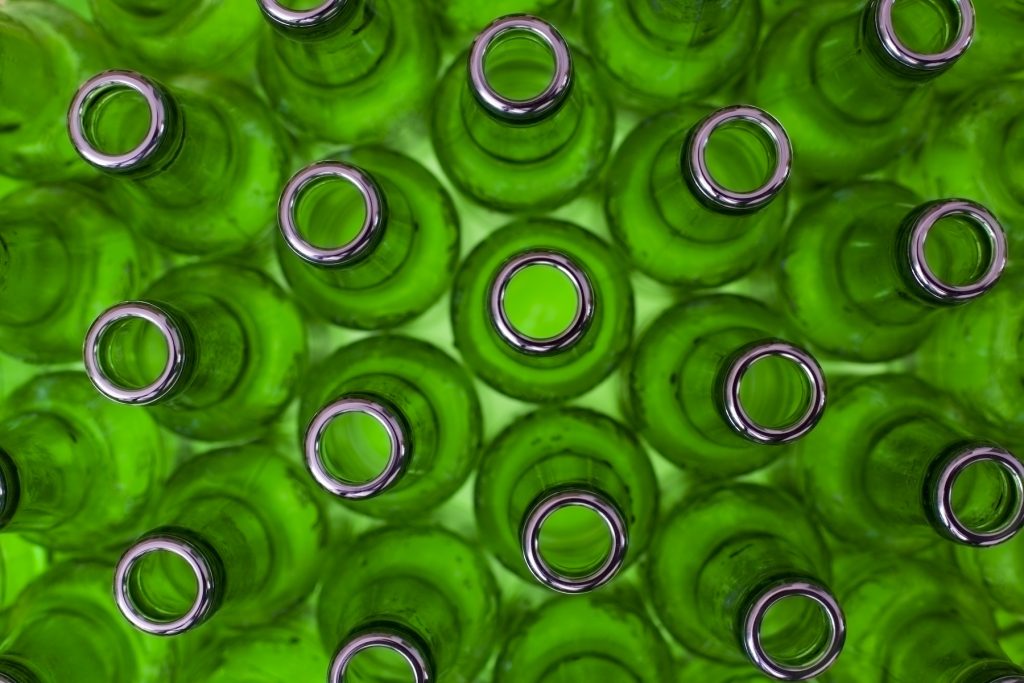New charter calls for more responsible attitude to industry-wide glass reuse
The London Wine Fair is calling on the drinks industry and global glass manufacturers to rethink the way the industry uses – or reuses – glass with the release of the Reuse Ready International Charter.

The Reuse Ready International Charter, which will be released at next week’s London Wine Fair, is the result of last year’s Bottle Collection Initiative, a collaboration between the London Wine Fair, non-profit organisation The Porto Protocol, which aims to catalyse climate action in the wine world, and wine-keg and refill wine specialists Sustainable Wine Solutions.
The Bottle Collection Initiative was launched last year to make sure that every bottle at LWF23 was collected and reused. However, head of London Wine Fair Hannah Tovey told the drinks business that the bottle collection initiative had proved more wide-ranging and complex than initially anticipated – from planning the right receptacles to use at the show to ensure they didn’t break, to breaking down the opportunities and challenges of reuse after the show.
The London Wine Show collected around 20,000 empty bottles from exhibitors last year, carrying out audits on around 1,017 1 bottles, with a label-removability audit carried out on 2,000 bottles. The remaining 18,000 bottles were reused or recycled by Sustainable Wine Solutions. It found that the wide variation in bottle sizes and weights presented a “significant barrier” that complicated the scalability of schemes that are essential to make a reuse supply chain a reality. The results show “chaos on a big scale”, Muriel Chatel managing director of Sustainable Wine Solutions said. For example, in the sample of 1,047 bottles, there were 947 different types that varied in shape, weight and design, while only 7% of bottles were the same, creating a significant challenge for reuse.
The good news is that 73% of bottles can be reused, giving substantial opportunities for the industry.
The findings from this project, which Tovey said provided vital intelligence for the global wine industry, will be revealed at the London Wine Fair on Wednesday 22 May at 12.45 on the Centre Stage.
“The industry’s consumption of glass is just not sustainable and whilst the solutions won’t come overnight, the Reuse Ready Charter provides a valuable tool for producers, glass manufacturers, buyers – everyone in the industry – willing (and able) to make a change,” she added.
Currently, more than 32 billion wine bottles are produced each years, with each bottle releasing an average of 600g of CO₂, – leading to total carbon emissions of around 19.8million tons each year. In the UK alone, around 1.77bn bottles of wine are consumed each year, the vast majority of which are single use.
Partner Content
According to the LWF team, single-use wine glass bottles account for 35% of the carbon footprint associated with each bottle of wine, with reusable glass offering the greatest potential to reduce the environmental impact. According to Zero Waste Europe, reusable glass produces 85% fewer carbon emissions than its single-use counterparts, 75% fewer carbon emissions than plastic (PET) and 57% fewer carbon emissions than aluminium cans.
The partners are therefore calling on industry stakeholders to take action in three key areas to reduce the number of single-use bottles and and adopt a more responsible, circular glass supply chain.
They have issued an open letter to the glass manufacturers urging them to listen to the global wine industry, which is one of its biggest customers, and are urging wine companies to leverage their corporate responsibility to effect change. Meanwhile, The Reuse Ready International Charter will consider action points that the entire industry – throughout the supply chain – can adopt to make a reusable supply chain a possibility and what would need to happen for this to become a reality.
Muriel Chatel, managing director of Sustainable Wine Solutions, called the reusable bottle “the silver bullet” that could ensure that glass bottles keeps their status as the container of choice because of its low impact and not simply because of “romance and tradition” at a time when PET bottles were increasing their presence on supermarket shelves.
“Already initiatives around the world by entrepreneurial pioneers are showing that a reusable supply chain is feasible, but only industry wide collaboration will allow it to scale,” she said.
Adrian Bridge, CEO of The Porto Protocol, noted that the outcomes of the 2023 Bottle Collection Initiative highlighted “the pressing need” for climate action in the wine industry. “With billions of bottles produced yearly, the environmental impact is significant, underlining the urgency for sustainable practices,” he said.
In a recent internal white paper, Michael Giannuzi, CEO of Verallia (Europe’s leading manufacturer of glass bottles for the drinks industry) noted that glassmaking experts “cannot afford to be smug about producing an infinitely recyclable material”, even though it was a great starting point for the glass industry. “Glass is only sustainable when it is reused when and wherever possible – and does in fact get recycled.”
Read more:
London calling: What’s on the LWF 2024?
Related news
'Exciting' and 'terrifying' says Tovey about her LWF buyout




